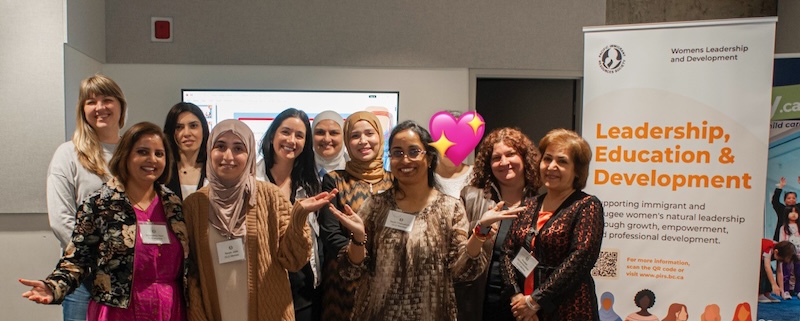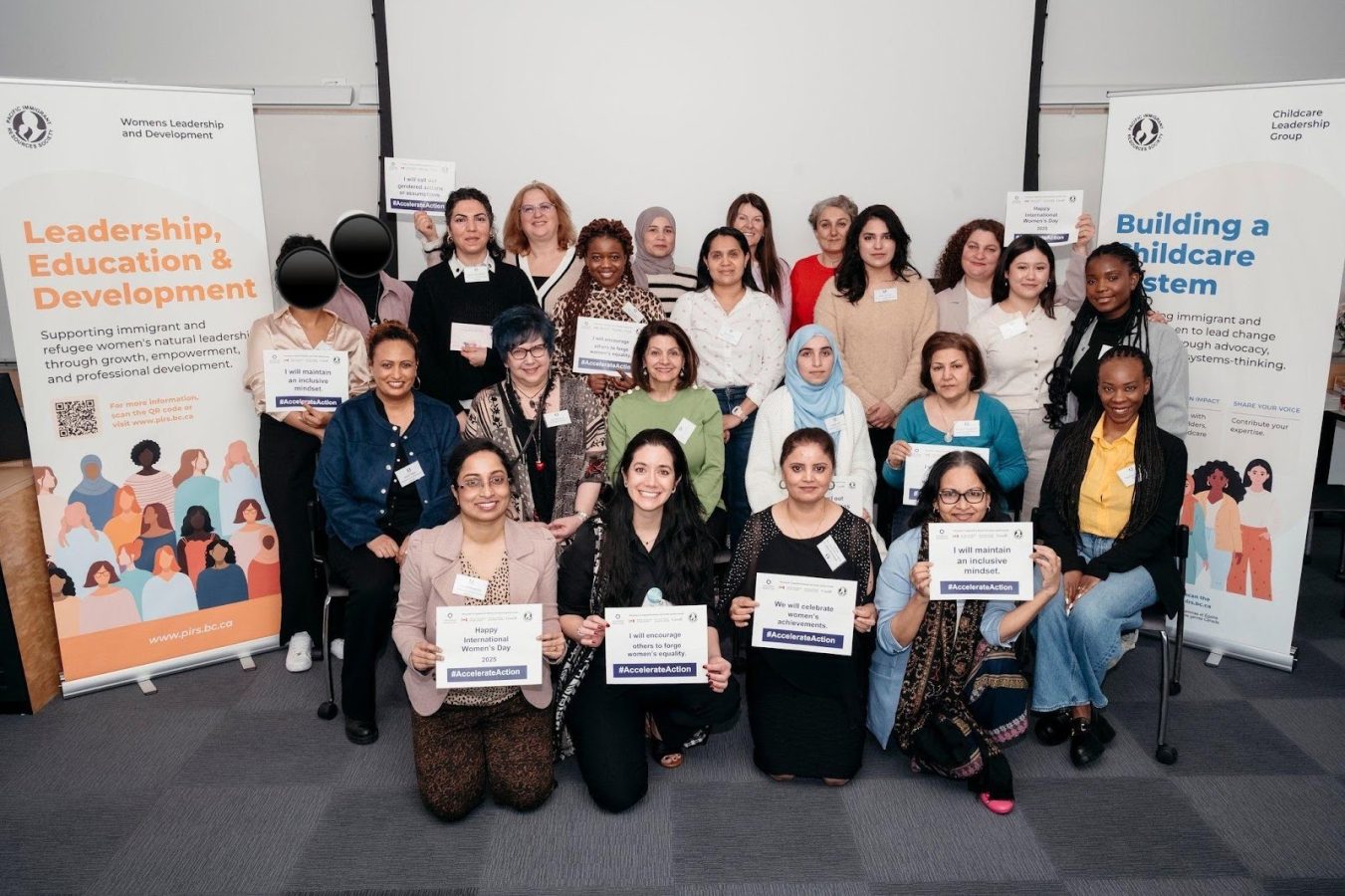Building a Childcare System (BCS)

About Building a Childcare System 2.0
Building a Childcare System that Works for Immigrant and Refugee Women—commonly referred to as Building a Childcare System (BCS)—is a project funded by Women and Gender Equality (WAGE) Canada and implemented by Pacific Immigrant Resources Society (PIRS), grounded in a strong commitment to leadership development and advocacy. The project aims to empower migrant women to advance more inclusive child care policies in British Columbia and across Canada. By centering the voices, experiences, and needs of migrant women—many of whom work in caregiving roles or face significant barriers to accessing child care—the initiative seeks to promote both individual agency and systemic change.
Currently in its second phase, Building a Childcare System 2.0 supports a new cohort of women to become confident advocates, turning their lived expertise into powerful policy recommendations. Read the full story
Our Participants
The participants of Building a Childcare System (BCS) are immigrant and refugee women who form the Childcare Leadership Group. The project is currently supporting a fourth cohort of 14 racialized immigrant and refugee women.
What We Stand For
We empower immigrant and refugee women to become leaders and advocates for an equitable and inclusive childcare system. By centering their experiences, we aim to drive systemic change, ensuring policies better reflect the needs of both immigrant families and the workers who support them.
Why it Matters
Why focus on immigrant women in early learning and child care?
Barriers Faced by Immigrant and Refugee Women in the Child Care Sector
This understanding of the multifaceted and complex challenges faced by many racialized immigrant and refugee women across Canada is fundamental to our Building a Childcare System 2.0. project which aims to address systemic barriers to workforce participation and integration into social, economic, and democratic life, especially as it concerns child care.
Childcare Leadership Group Activities
Building a Childcare System that Works for Immigrant and Refugee Women 2.0 is a community-based initiative led by the Pacific Immigrant Resources Society (PIRS) and funded by Women and Gender Equality (WAGE) Canada. The project aims to address systemic barriers in the childcare sector, particularly those impacting immigrant and refugee women, by equipping them to become leaders and advocates for change.
At the heart of the initiative is the Childcare Leadership Group (CLG) — a cohort of racialized women with lived experience who come together to strengthen their leadership, advocacy, and policy engagement skills. Through capacity-building workshops, sector collaborations, and advocacy activities, participants learn how to shape public policy and contribute to building a more inclusive and equitable childcare system.
The project focuses on three interconnected components:
Our Research
Building a Childcare System 1.0 focused on connecting accessible childcare to women’s workforce participation. It highlighted the barriers migrant mothers face in accessing childcare and the challenges migrant workers encounter in the sector.


Stay Connected
Sign up to receive PIRS’ monthly newsletters with updates on our project Building a Childcare System that Works for Immigrant and Refugee Women 2.0. Read our past issues here.















